Child Development Monitoring from 0 to 5 Years (In French)
This workshop offers you an understanding of the motor, cognitive, language, socio-emotional, and sensory development stages of children aged 0 to 5.
Free
Our cookies and those of our partners help improve your experience and analyze your use of the website. To learn all about cookies, check our privacy policy
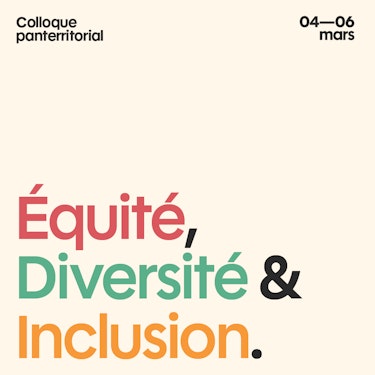
On this third day, hosted from the Northwest Territories, the Panterritorial Colloquium on Inclusive Leadership continues its mission of exploration and reflection on equity, diversity, and inclusion (EDI). This inspiring gathering highlighted expert insights on the challenges and opportunities of inclusive leadership.
Bianca Briciu (she/her) and Michaël Séguin (he/him) deepened the discussion on inclusive leadership by emphasizing the importance of emotional intelligence. They explored how our reactions to differences influence workplace behavior and proposed strategies to transform obstacles into opportunities for collective growth.
“It takes a safe and brave space. We need to create an authentic dialogue space because emotions significantly influence the quality of engagement in our environment.” — Bianca Briciu (translated from French)
“EDI requires more listening, attention, and, above all, case-by-case consideration. It may seem demanding and energy-intensive, but it will necessarily create a more cohesive, flexible, and proactive team, ultimately benefiting the organization.” — Michaël Séguin (translated from French)
“We use emotional intelligence as a mise en abyme of this experience of exclusion.” - Bianca Briciu (translated from French)
Emotional intelligence is a powerful lever for transforming organizational structures and reinforcing inclusion. Four key dimensions emerge:
“EDI requires more listening, attention, and, above all, case-by-case consideration. It may seem demanding and energy-intensive, but it will create a more cohesive, flexible, and proactive team.” - Michaël Séguin (translated from French)
Bianca Briciu and Michaël Séguin highlighted six traits of inclusive leadership:
Inclusion is not just a policy but a culture that must be embedded in every aspect of organizations. As Bianca Briciu emphasized, “It takes a safe and brave space. We need to create an authentic dialogue space because emotions significantly influence the quality of engagement in our environment.” (translated from French)
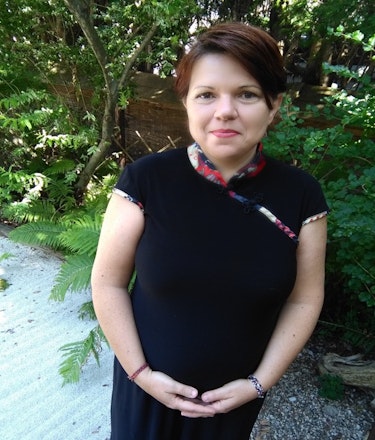
Bianca Briciu (She/Her) is an Assistant Professor at the School of Leadership, Ecology, and Equity, Saint Paul University, Ottawa. Her work focuses on leadership development through emotional and social intelligence, mindfulness, compassion, and systems thinking. Her research covers emotional intelligence, transformative leadership, EDI issues, integral education, and spirituality. Bianca is a certified emotional intelligence coach and the author of The Revolutionary Art of Love - from Romantic Love to Global Compassion.
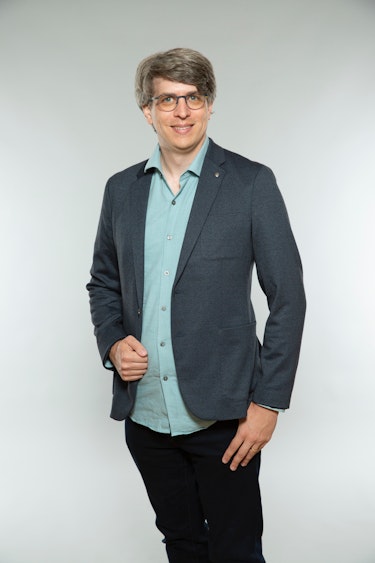
Michaël Séguin (He/Him) is an Assistant Professor and Director of the School of Leadership, Ecology, and Equity at Saint Paul University, Ottawa. A sociologist specializing in ethnic relations, he focuses on developing policies and practices that foster diversity, equity, and inclusion in community organizations (including settlement agencies) and higher education institutions. His teaching and research explore power dynamics in organizations, socio-organizational change, awareness of differences, and inclusive leadership.
Moderated by Sandie Redon, a panel of EDI+ (Equity, Diversity, Inclusion, and Accessibility) experts engaged in rich discussions on the challenges of gender stereotypes in leadership.
Panelists: Sandie Redon, Rose-Eva Forgues-Jenkins, Charli-Rose Pelletier, Selena Mell, Dr. Ghizlane Laghzaoui
This discussion explored the impact of stereotypes at three levels – individual, organizational, and societal – and their consequences, particularly regarding mental health, social relationships, and leadership dynamics. The goal was to develop essential skills for integrating EDIA+ principles into professional practices while fostering collaborative and resilient approaches to resistance to change.
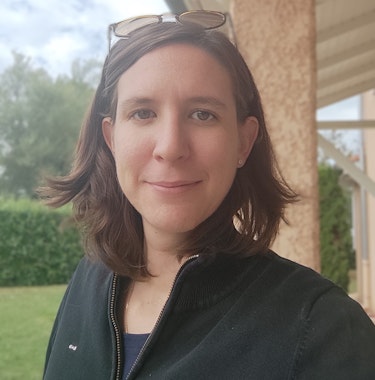
Sandie Redon (she) is currently the Project Manager for Women at the Fédération franco-ténoise (FFT), with over 10 years of experience in human resources and training. She has led various projects in HR development, particularly in EDIA+ (Equity, Diversity, Inclusion, Accessibility), and has held the position of Diversity and Inclusion Officer for a French entity of an American group. Versatile, she has also worked as an HR operational officer, trainer, and teacher. Committed to gender equality, she is a board member of an association dedicated to this cause. Her expertise extends to facilitating and leading constructive exchanges, bringing her experience and passion to high-impact social projects.
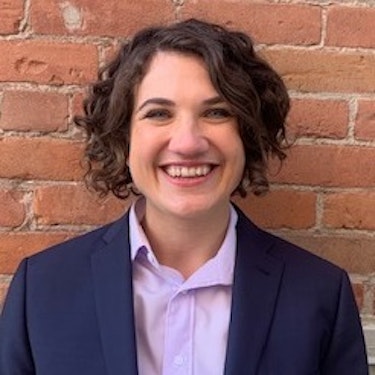
Rose-Eva Forgues-Jenkins (she/her) is a queer woman who grew up in the Francophone community in Edmonton, located within Treaty 6 territory. She studied at the University of Alberta, where she completed a bachelor’s degree in psychology and film studies. She has worked in radio, youth education, and community research. In 2020, Rose-Eva was named one of the ‘Top 30 Under 30’ by the Alberta Council for Global Cooperation. She has been working as the Program Manager at the Comité FrancoQueer de l’Ouest since 2021. She has served on the Board of Directors of the Pride Centre of Edmonton since 2019.
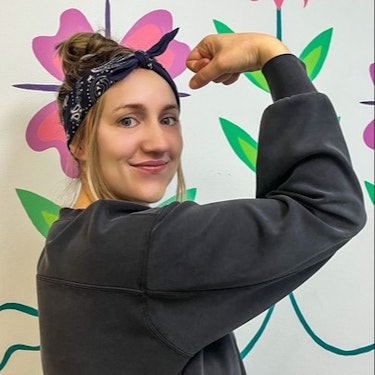
Charli-Rose Pelletier is the Gender Equality Project Lead at Les Essentielles in Yukon since 2024, after working as a Mobilization Officer since 2022. She holds a bachelor’s degree in social work, as well as certificates in criminology and immigration and interethnic relations. She has solid expertise in social intervention. Her career has led her to work with diverse groups, including adolescents in public housing, immigrant women, and homeless men. Driven by a deep commitment to social justice, she aspires to pursue a Master’s in Business Administration (MBA) with a specialization in corporate social and environmental responsibility. Passionate about the outdoors, she also enjoys creating her own natural cosmetic products and spending time with her dog, Puss Puss.
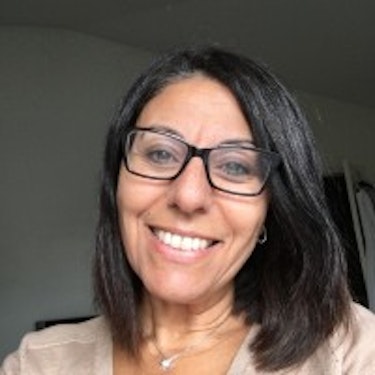
Dr. Ghizlane Laghzaoui was born and raised in Morocco. She immigrated to Canada in 2000 with her husband and two children. She holds a PhD in Educational Leadership and Diversity Management (Simon Fraser University, 2011), and a PhD in African Studies (Université Charles De Gaulle, 1992). She is currently an Associate Professor and Chair of the Race and Antiracism Network (RAN) at the University of the Fraser Valley (UFV). Since the beginning of her experience as an immigrant, she has been involved in research, community service, and training, focusing on women’s rights, leadership, equity, antiracism, linguistic identity building, and belonging in the context of French-speaking immigration in minority settings. As a researcher and consultant, she has developed training and tools on antiracism, inclusive leadership, youth engagement, and equity for various non-profit organizations:
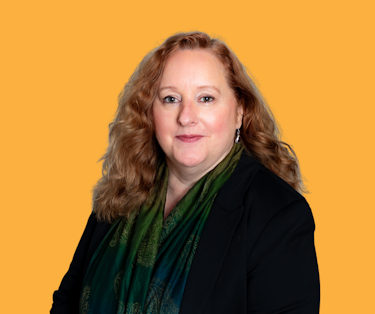
Selena Mell, originally from the Laurentides in Quebec, has over 35 years of experience in education, leadership, and mentoring. She has held leadership positions in schools, governments, and universities, working internationally in Abu Dhabi, Germany, China, and Chile, as well as in several regions of Canada, including British Columbia, northern Manitoba, Newfoundland and Labrador, and Quebec. She has held leadership roles such as school principal, district superintendent, education director, and deputy education director. Passionate about equity, diversity, and inclusion (EDI), she has contributed to the development of specialized education programs, strengthened Indigenous initiatives, and promoted bilingualism. With her expertise in northern and remote settings, she understands the unique challenges of education in these regions. A strong advocate for collaborative leadership, she fosters environments that value the diversity of experiences and knowledge, while supporting female leadership in education.
Denise Amyot led an immersive coaching session on inclusive leadership. Through interactive exercises and deep reflections, she helped participants better understand the impact of know-how and being in creating an organizational culture based on trust and inclusion.
Denise Amyot highlighted the importance of active and attentive listening:
"Often, the people we love the most, we only listen to them 25 or 40%. We take them for granted. And when we don’t feel listened to, we disconnect, we feel irritated, and we lose trust in the relationship. That’s how we lose credibility in leadership." (translated from French)
Generous listening not only strengthens interpersonal relationships but also encourages a climate of collaboration and trust.
Generous listening: a powerful tool. Participants experienced 100% attentive listening and shared the well-being they felt when they were fully heard. The exercise also demonstrated that active listening doesn’t just mean staying silent, but rather creating a mental space to truly hear the other person. During 110% listening, the interactions were enriched by strong emotional involvement and increased non-verbal engagement.
Changing your glasses: adopting a fresh perspective on diversity. Denise illustrated by the metaphor of glasses how our perception of the world is influenced by our experiences and beliefs:
"There are people who will never change their glasses even if they don’t fit. Some have rose-colored filters, others black. When we talk about diversity, we need to consciously look beyond our frame of reference, our glasses, to broaden our horizons." (translated from French)
Managing emotional contagion
Denise explained that our emotions influence those around us. She introduced the concept of the emotional line:
Above the line: positive mindset, choices, and contemplation.
Below the line: feelings of helplessness, victimization, and stress.
As leaders, it’s crucial to stay above the line and protect the team from negative energy.
Awareness of one’s identity.
Participants were invited to identify five traits that define their personality, then to change one. This exercise highlighted the importance of recognizing the value of personal traits and the privilege they may represent.
Responsibility in interpersonal relationships.
Denise asked participants to list 15 important relationships in their life and then rank them according to their quality. By becoming aware of the diversity within these circles and their own responsibility in these relationships, they explored how their perceptions impact their social and professional dynamics.
"Sorry to burst your bubble, but we are 100% responsible for our relationships. We need to ask ourselves: now that I know I’m responsible, how would I feel if I chose to view this relationship as good instead of hostile?" - Denise Amyot (translated from French)
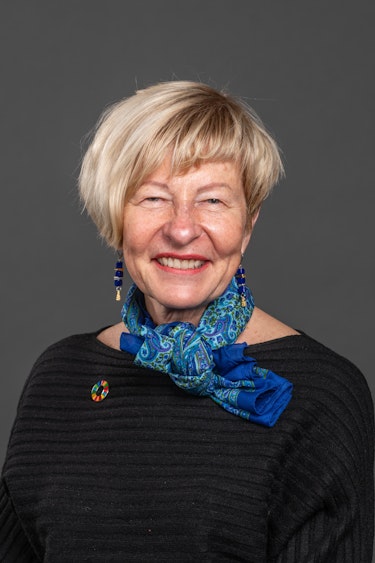
Denise Amyot is a consultant, leadership trainer, and executive coach. She led Colleges and Institutes Canada (CICan) for over ten years, a national association influential in postsecondary education. Under her leadership, CICan managed a $10 million federal project to promote diversity through the 50/30 Challenge. She contributed to the development of mental health standards for postsecondary institutions and worked towards recognition and reconciliation with Indigenous peoples through the implementation of the Indigenous Education Protocol. She was also involved in the fight against climate change by advocating for the United Nations Sustainable Development Goals.
With nearly 30 years of experience in the federal public service, she has held assistant deputy minister positions in three departments and chaired a crown agency. Her expertise extends to multiculturalism policies, racial relations, and Indigenous affairs. She was also the first coordinator of French programs for the Northwest Territories before the creation of Nunavut. In recognition of her commitment to postsecondary education in Canada and internationally, she received an honorary doctorate from Kwantlen Polytechnic University and several national and international awards.
Loading
Thank you for subscribing